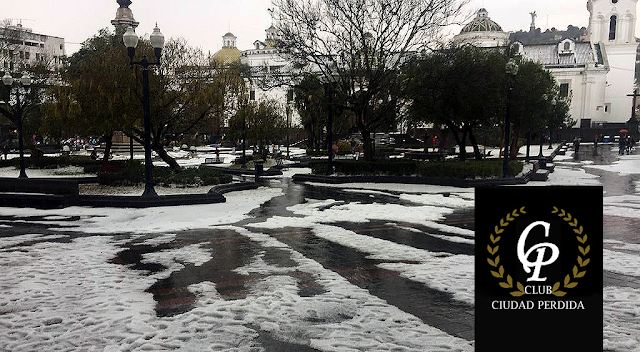Once a ‘net exporter’ of its citizens to other countries, Ecuador is now a net ‘importer’
“As many as 50,000 people from North America and Europe have moved to Ecuador since about 2008,” he says. “The country ranks in the top five in the world for voluntary in-migration, and because of political and crime problems in other countries..."
 |
| Quito - Ecuador : Independence Plaza 2018. Photo by Lucas Salaun |
From the late 1980s to the early 2000s, an estimated two-and-a-half million Ecuadorians left the country. Most headed for the U.S. with a third of them settling in Canada, Spain, Italy and France.
“It was a period of great hardship for many in this country,” says
Juan Lozano, sociology professor at the University of Guayaquil. “They
wanted better lives and more opportunity for their children and to do
this they saw no alternative but to leave home.” He adds that southern
Ecuador, including the cities of Cuenca, Loja and Machala, saw the
highest rate of out-migration.
“For a period of time, these cities actually saw a reduction in population.”
“For a period of time, these cities actually saw a reduction in population.”
 |
| Although immigrants present short-term challenges for Ecuador, experts say they will eventually provide a boost to the country. |
Things are different today, Lozano says. The majority of those who left the country have returned and, in addition, hundreds of thousands of migrants from other countries have arrived. Ecuador’s foreign ministry estimates that about 500,000 foreigners have settled in Ecuador since 2010 and more are expected. That number includes the current influx of Venezuelan refugees which the ministry estimates at about 250,000, most of them arriving since the beginning of 2017.
“Despite having problems of its own, Ecuador is a land of opportunity
for Colombians, Venezuelans, Cuban and Haitians escaping poverty and
violence,” says Lozano. “Our murder and violent crime rate is a fraction
of that in those other countries and many of those coming in are able
to find employment.”
In addition to those escaping bad conditions back home, Ecuador has
also become a magnet for what Lozano calles “voluntary” or “retiree”
immigrants. “As many as 50,000 people from North America and Europe have
moved to Ecuador since about 2008,” he says. “The country ranks in the
top five in the world for voluntary in-migration, and because of
political and crime problems in other countries, like Mexico and
Colombia, I expect the number to continue to grow.”
According to the foreign ministry, migrants tend to settle in larger
cities, with Quito, Cuenca, Guayaquil and Santo Domingo being the most
attractive landing spots. “There is more opportunity in these cities and
better chance of blending in than in smaller communities and rural
areas,” says ministry spokesman Gustavo Miller.
 |
| Ecuador landscape- Chimborazo snowy |
Although the arrival of thousands of foreigners, many of them poor, puts short-term strains on the country’s social services, immigration experts believe that the newcomers will eventually prove to be a benefit to the country.
“In general, the refugees are more motivated to make a better life
for themselves than those they leave behind,” says Michel Levi,
professor at the Simón Bolívar Andean University. “In the case of the
Venezuelans, many of them are professionals, doctors, lawyers,
accountants and business owners, who will help Ecuador build what we
call human capital. Cities like Cuenca and Quito, in particular, are
already benefiting from these professionals.”
Levi adds that history has proven that in-migration is a boost to the
culture and economy of countries.
“The best example, of course, is the
U.S., which continues to benefit from the talents of immigrants. I think
we will see the same effect in Ecuador.”
 |
| Ecuador - Ciudad Perdida Club the best Expats living community. |


Comments
Post a Comment